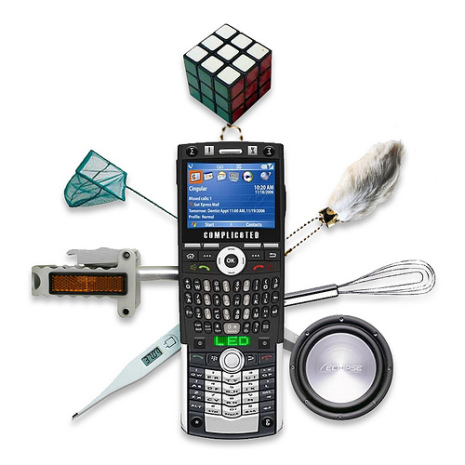
Bangalore: With the technology becoming the top echelon for any business, information dissemination is no more confined to any particular medium. After the success of internet, mobiles could prove to be more advantageous as it is user friendly and is not place dependent, allowing freedom to the user to access internet as per his or her convenience.
Internet mobile applications seems to be easy and interesting but putting all kind of content on a cell phone is quite a task to be accomplished. Addressing these issues, Siliconindia had organized the Mobile Applications Conference, to provide a platform for the mobile application developers and entrepreneurs in mobile technology.
"There is lot of complexities with mobile applications. Mobile device is not a PC. It has different versions, editions, feature packs, firmware updates and all of them have to be dealt separately," said Vishwanath Alluri, Chairman, CEO & Founder, IMImobile. Alluri figured out some of the problems faced by developers and listed out some of them being inconsistency in implementation of standards, inconsistencies in capabilities, the challenge of distribution and monetization and the limited access to the applications.
Sharing the entrepreneurial experiences, Mouli Raman, CTO & Co-Founder said, "We worked with telecom operators closely to understand the consumer mindset and we got to know that one out of every four consumers in India uses ringback tones." OnMobile has marked its presence in 26 countries across the world and will expand its presence in nearly 40 countries in over a year. Raman shared an important fact that, many apps which are applicable in the Indian market is applicable on the rest of Asian markets as well, though the content might be different but the taste of the consumers is the same. It is very important for every app developer that, the apps they create should be easy to use or else the consumers will drop that app and the opportunity to bill the customers through mobile networks becomes minimal.
Indian market is perceived to be a big market for mobile apps but there are certain drawbacks which might create problems for an easy growth of mobile applications. "Though India is a big market but the internet bandwidth available over here is not as good as the one in U.S. and European countries," said Shiva Bayyapunedi, Founder & Director, Apalya. The market of mobile applications is about to grow as big as the internet as hundreds of handsets are capable of installing and running apps. With the 3G coming to India, mobile applications are going to have a major impact on our economy.
Comments
Post a Comment